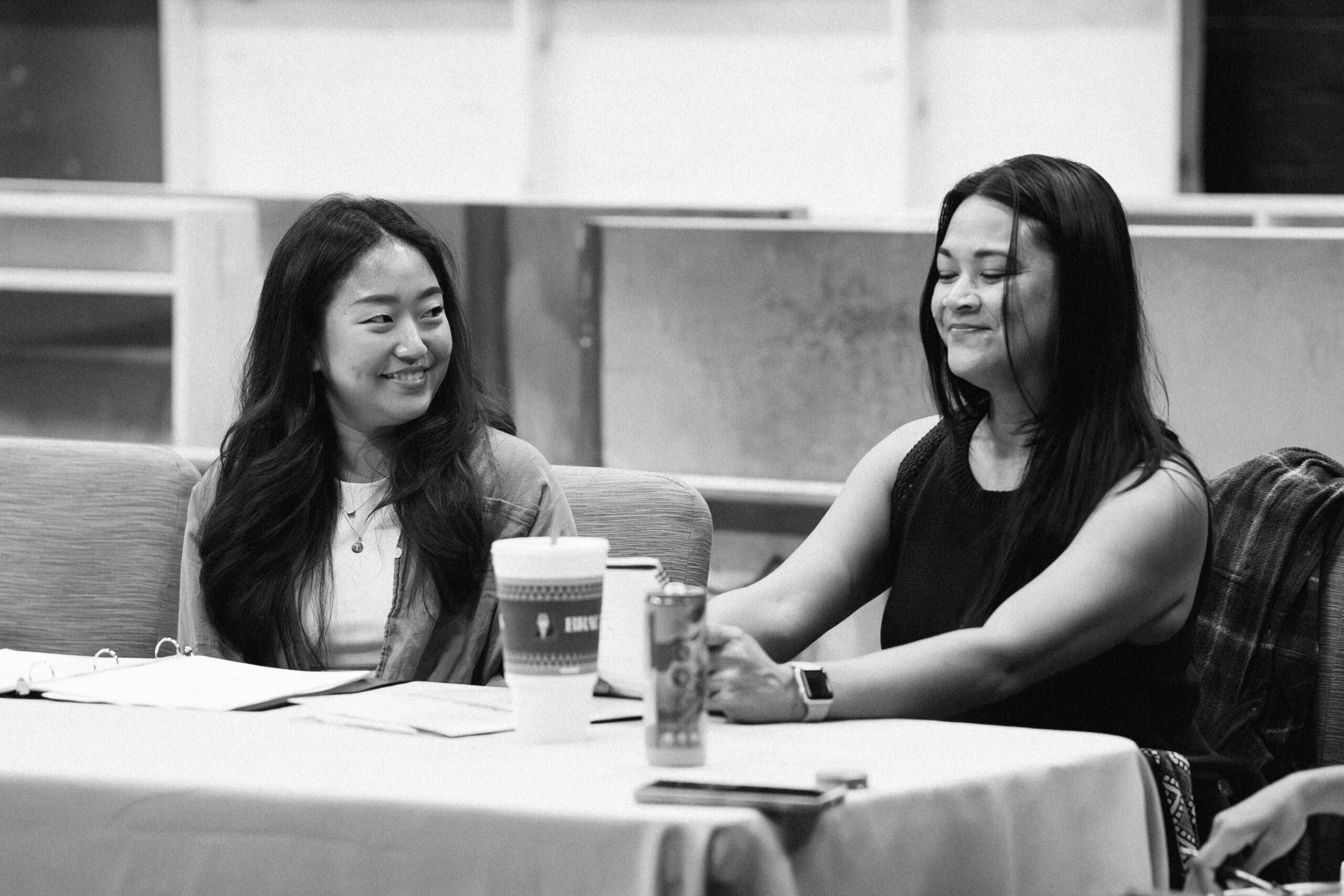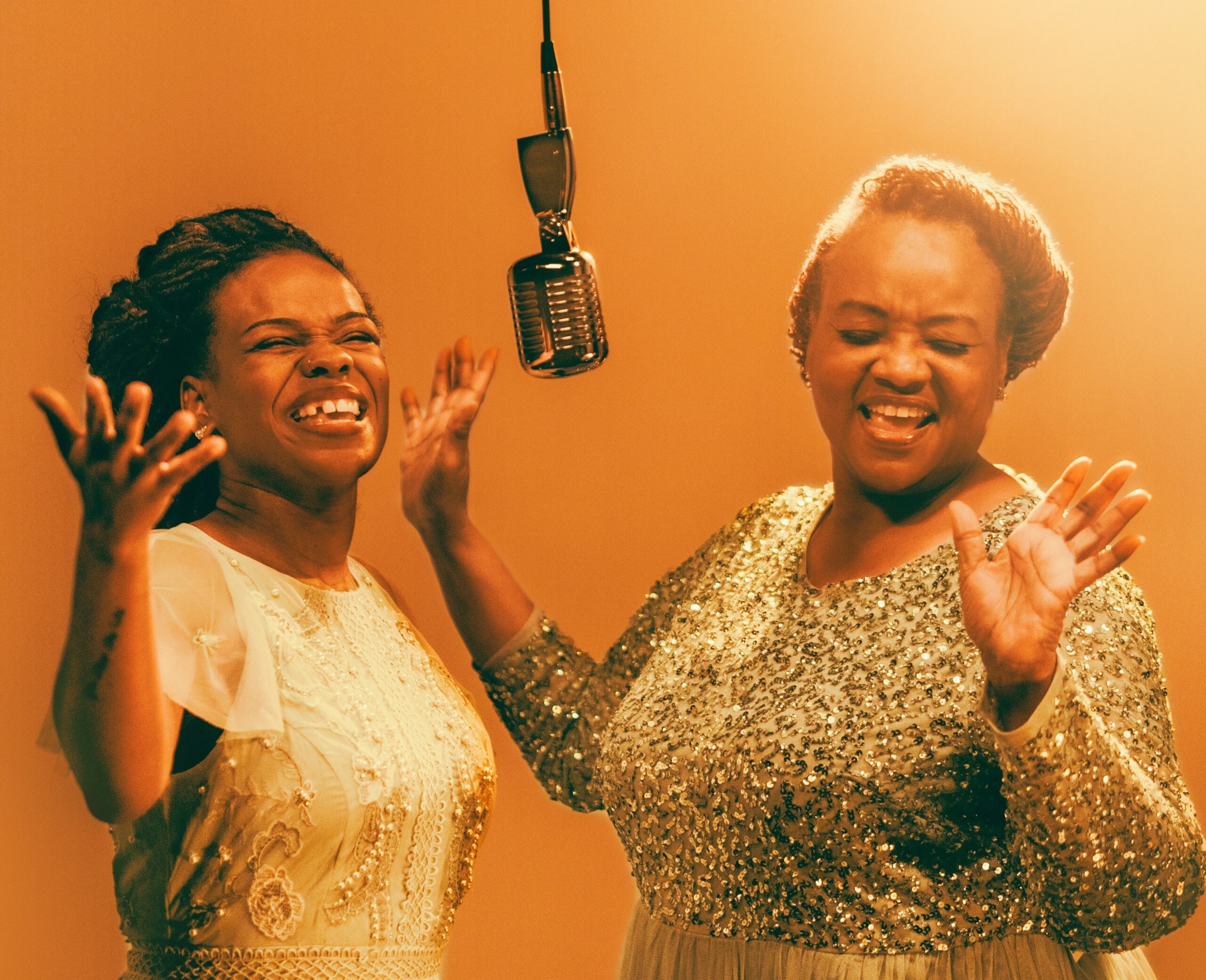Originally published on Onstage NTX.
I’ve seen a thing or two at Amphibian Stage, but never felt the room rock in quite the way it does for Marie and Rosetta—half a bio-play, half a gospel/rock blowout, and every bit of it as spirit-lifting as all get-out.
So first thing, raising my hands for the legendary Denise Lee (as Rosetta) and American Idol’s Denise Jackson (as Marie)—plus the Chicago-based director Egla Birmingham Hassan, whose sense of dialogue and humor help them bring emotional weight, humor, and energy to the “story” part of the proceedings.
I came out the door on a show high from the fabulous singing and musicianship. In the parking lot, I was still stepping out in time to “Up Above My Head.” And with it all, there was a thru-line of respect and sadness for the hard lives these women had to take on and survive to give us their gift of music.
Sister, sister.
Marie and Rosetta, by the prolific George Brant (Into the Breeches!, Grounded) tells the half-lost story of Sister Rosetta Tharpe and her talented partner Marie Knight, who in the 1940s and ‘50s were music stars of the first magnitude—and major “influencers” (though the word was yet to be coined) of Chuck Berry, Ray Charles, Elvis, Johnny Cash, Jimi Hendrix, Eric Clapton, and so many more.
The setting, a coffin-strewn Mississippi funeral parlor of the 1940s, is explained as the sort of place where touring Black singers might stay for the night—there being no “room in the inn” for them in the Jim Crow town. It’s also a try-out space for Marie, a local quartet singer Sister Rosetta thinks might have the talent she needs in a partner onstage.
Marie is jittery, worried about ghosts—and not sure she ought to get involved with Sister Rosetta, who is on the church’s naughty list: she sings gospel in church, but more “secular” stuff in clubs and warehouses around the country (including the Cotton Club in Harlem). “Too dirty?” Rosetta asks Marie—but they get to work on some numbers, and after a few skuffles about getting more “swing” into Marie’s style (and hips), their blazing talents look to be a good match.
Lee and Jackson go through some great songs—”This Train,” “Didn’t It Rain,” “Rock Me,” “Four or Five Times”—and look comfortable with the instruments, though they’re not playing live. (Music director Steven A. Taylor handles piano behind the scenes, with Darrin Kobetich on acoustic and electric guitars—and lucky us to hear them!) Props designer Bentleigh Nesbit’s best find is a crystal-white electric guitar that draws all the light in the room—as it should: Sister Rosetta going “electric” was a music-world shock like Bob Dylan’s transfer of affections.
Brant’s script lets the situation reveal their stories: they’ve just met, and we’re listening as they tell each other bits of their past histories: the husbands (Rosetta calls them “squirrels” for the way they tuck away her money), their caring Mamas, the struggle of being and wanting something different than staying put where you were born.
Lee’s and Jackson’s voices, in solos or duets, are wonderfully effective: rich, pitch-perfect, digging down into gravel when a rock sound is needed, soaring quietly in the old gospel hymn “I Heard My Mother Call My Name In Prayer.” In the intimate setting of Amphibian’s stage space, this is a terrific opportunity to hear these singers at close range.
Rosetta tells Marie she’s got to “own her gift” and get some joy, some fun out of it. The Bible, she agrees, doesn’t have any jokes—but “there’s joy” to be found all through it.
The play touches lightly, poignantly on the duo’s personal relationship: they shared a house (and Marie’s children) until a fire killed the children and Marie’s mother, a tragedy that also broke up their musical partnership. And though racism isn’t much talked about directly, it’s in everything. Rosetta’s girlhood memory of white tourists tossing “pocket change” down from a church balcony is both sad and sassy—and a witness to the backbone she already had as a child.
Once is not going to be enough for me: this show, I’m seeing again, and you should grab a seat and take a friend before the tickets get bought up by “second comers” like me. You’ve been warned.
WHEN: April 5-28, 2024
WHERE: Amphibian Stage, 120 South Main Street, Fort Worth
WEB: amphibianstage.com



